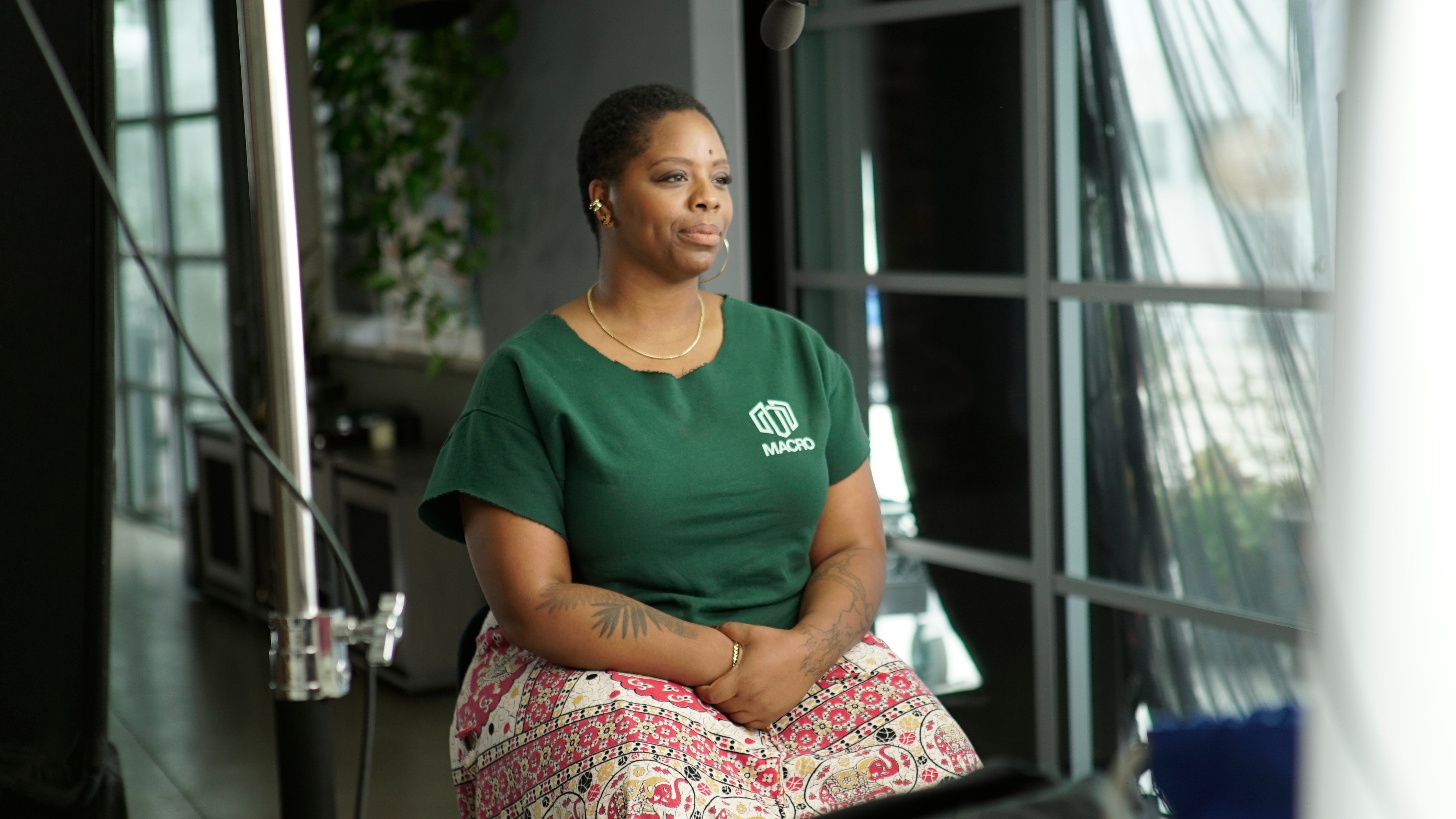Why exactly do you think BLM founder Patrisse Cullors shouldn’t live in a million-dollar house?
When I first heard about the controversy surrounding Cullors’ wealth, it gave me pause. Then I realized that’s because I’ve been conditioned to think a certain way about the Black struggle and Black success


Your support helps us to tell the story
From reproductive rights to climate change to Big Tech, The Independent is on the ground when the story is developing. Whether it's investigating the financials of Elon Musk's pro-Trump PAC or producing our latest documentary, 'The A Word', which shines a light on the American women fighting for reproductive rights, we know how important it is to parse out the facts from the messaging.
At such a critical moment in US history, we need reporters on the ground. Your donation allows us to keep sending journalists to speak to both sides of the story.
The Independent is trusted by Americans across the entire political spectrum. And unlike many other quality news outlets, we choose not to lock Americans out of our reporting and analysis with paywalls. We believe quality journalism should be available to everyone, paid for by those who can afford it.
Your support makes all the difference.The vilification of Patrisse Cullors, the co-founder of Black Lives Matter, for buying a million-dollar house in an affluent, mostly white neighborhood is a distraction.
It’s a distraction that is a bitter pill to swallow, not because Cullors has declared her support for Marxism, but because of the timing. We’re not asking ourselves why Daunte Wright was shot and killed this week. We’re asking why a woman who founded a racial justice movement has a million-dollar home.
The reaction to Cullors’ ability to buy a nice house speaks volumes about what we think Black people should fight for, and what Black people should have access to.
I’ll be honest: Discovering Cullors could afford to buy a nice house in an affluent part of Los Angeles gave me pause too. As an LA resident myself, I’m acutely aware that the city she and I both live in is struggling with homeless rates that have increased exponentially since the pandemic began. The increasing number of homeless encampments on the drive between my home and my kid’s school is, quite frankly, heartbreaking.
But after that pause, I immediately called myself out — because I realized that the pause itself was connected to how I’ve been conditioned to view the Black struggle. When we talk about equity, we often look at the lowest common denominator: access to decent — not good — schools; functional — but not amazing — housing; the ability to live our lives without prejudice, but not necessarily to live our lives to the fullest.
The truth is that we’ve been conditioned to believe advocates for equality and equity should, or do, have limited funds. But really, the whole attitude is upside-down. After all, isn’t equity about everybody having access to the same opportunities, each according to their need? Equity isn’t about people struggling together — it’s about thriving, and knowing that the only way we can all do that is by working together. Social justice movements like the one championed by Cullors work towards the understanding that we’re all important and should all be valued. That Black Lives Matter, too.
A typical Black household in the US has 12.7 percent of the wealth of a typical white household, according to the Center for American Progress. This means that Black people, even when we’re fighting for equity, constantly have to figure out how we can pay our bills and craft a financial foundation for our future. In a capitalist society that constantly affirms a belief in the American Dream, we also want access to the things that will make our lives feel more comfortable and more secure. Sometimes that’s a house with four bedrooms.
In 2020, Cullors appeared in a video where she confirmed she believed in Marxism as a philosophy that questions capitalism. “We can get to a place where there is a socioeconomic system that doesn’t oppress some groups of people and only uplifts a few,” she explained. That description of her personal ideology matters. She is not advocating for collectivist farms or a communist dystopia, nor has she ever. She simply believes in questioning the status quo, in challenging economic systems that currently lead to unequal outcomes, and in holding capitalism to account. There is no reason why a person can’t have personal luxuries while running profitable businesses and also advocating for racial justice. There is no reason why one shouldn’t find some facets of Marxism fascinating and intellectually interesting, and others not at all, while at the same time living within a capitalist society. All of these subtleties and nuances are allowed in a person’s life, while they believe and fight for anti-racist causes at the same time.
Is Cullors profiting from BLM donations? I doubt it — and there’s no evidence to support that accusation. But it’s clear she’s made a career from it. She’s not alone in building a career from her advocacy. The likes of Warren Buffett, Gloria Steinem and Amal Clooney have all made names for themselves in pursuing noble aims while at the same time accruing wealth. We all have to eat, and money can be a touchy subject for those who espouse philanthropic or activist views — but it shouldn’t be. Only the very wealthy – who are typically white people – can afford to volunteer to lead movements. Black people have been continually shut out of places where they might be able to generate their own wealth over the past hundred years, and that means that demanding they prove their virtuousness by staying poor is completely absurd.
No matter what the hosts of Fox News or right-wing tabloids might assert, Cullors’ actions are completely consistent with her words. I’ve never analyzed her personal purchasing choices in depth — I believe they are for her — but her actions have always shown that she believes in equality for all. Whether that means access to a good education, the finances to buy a mansion, or anything in between has never led me to question her commitment to the idea that everybody has the right to safety — and, yes, comfort.
We all deserve to live our best lives, Patrisse Cullors included.
Join our commenting forum
Join thought-provoking conversations, follow other Independent readers and see their replies
Comments